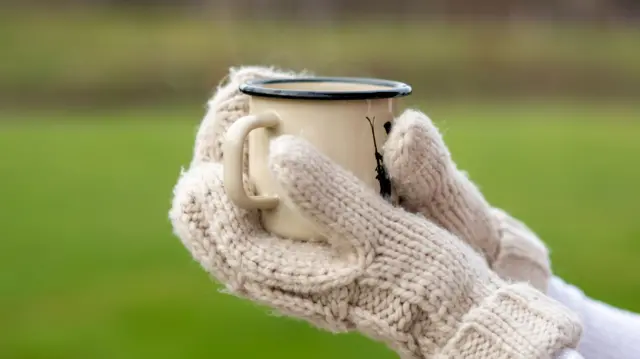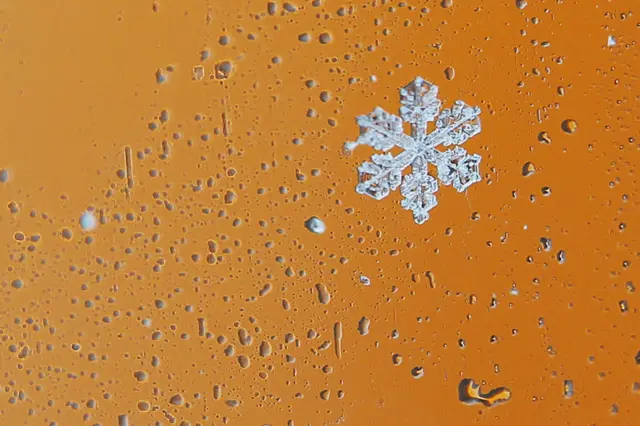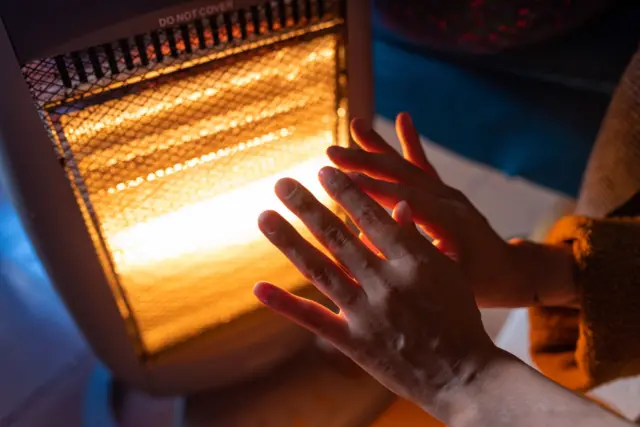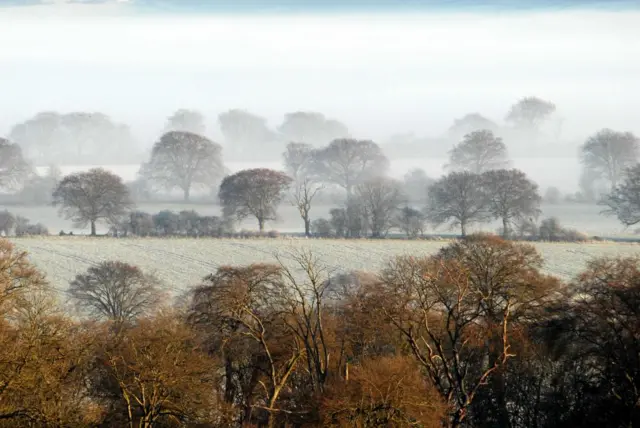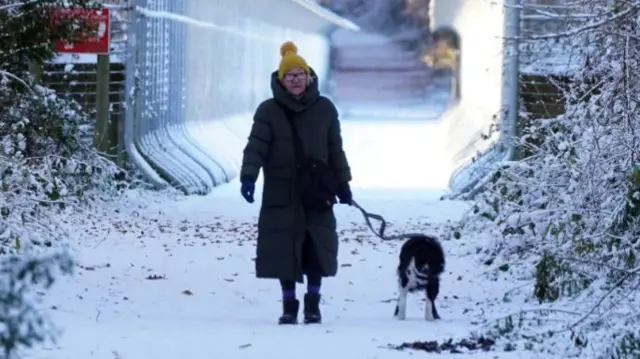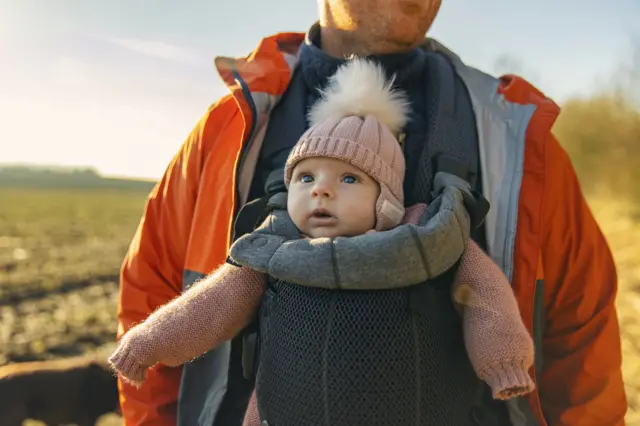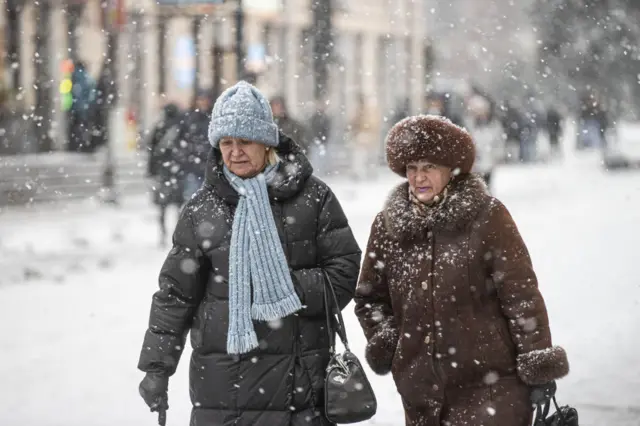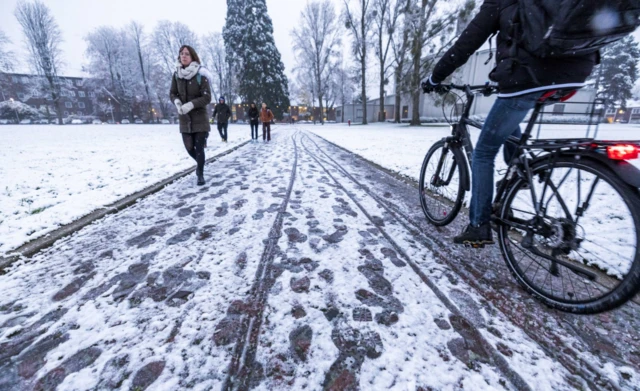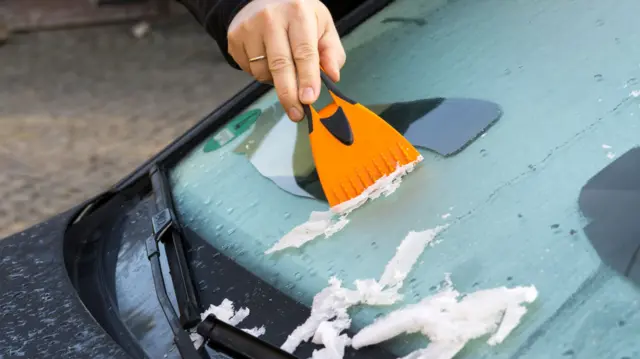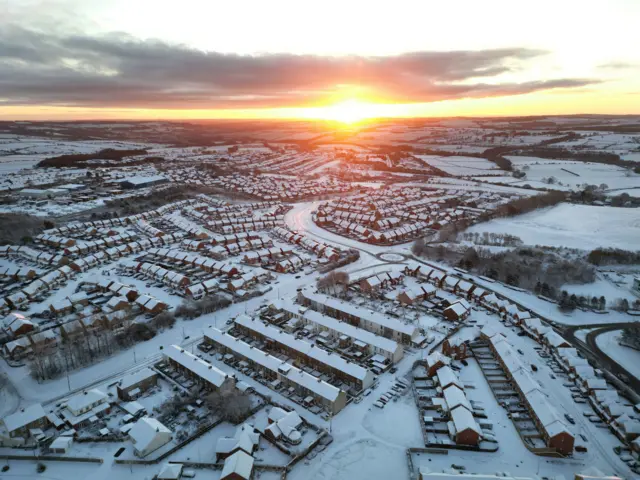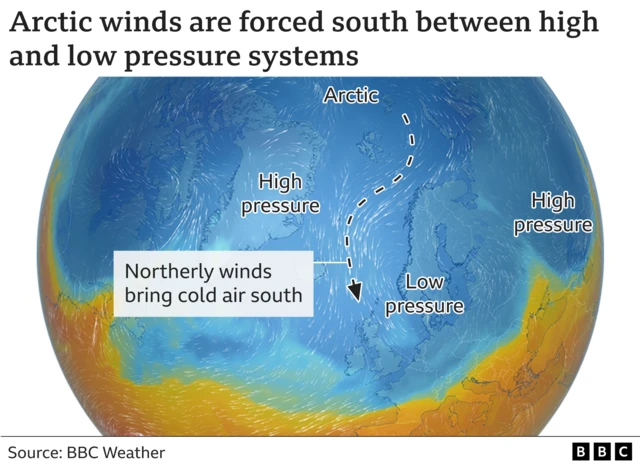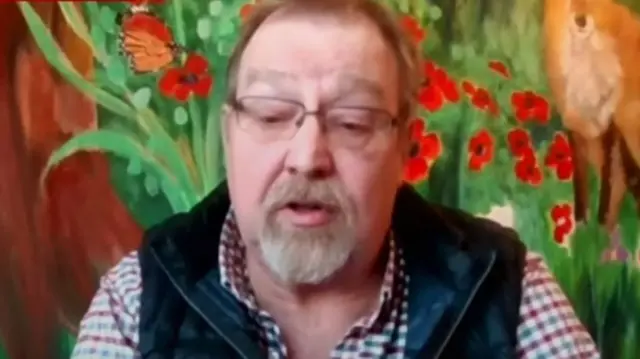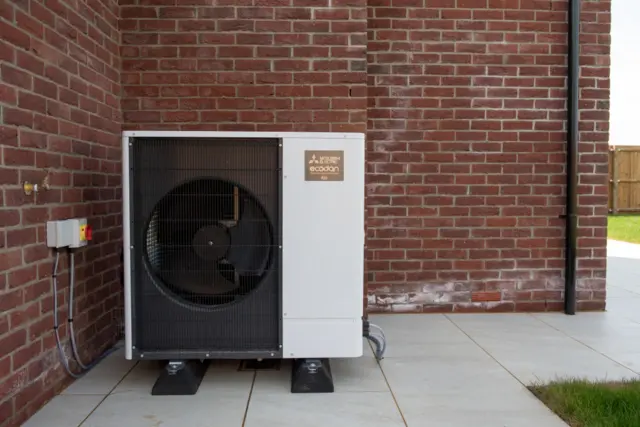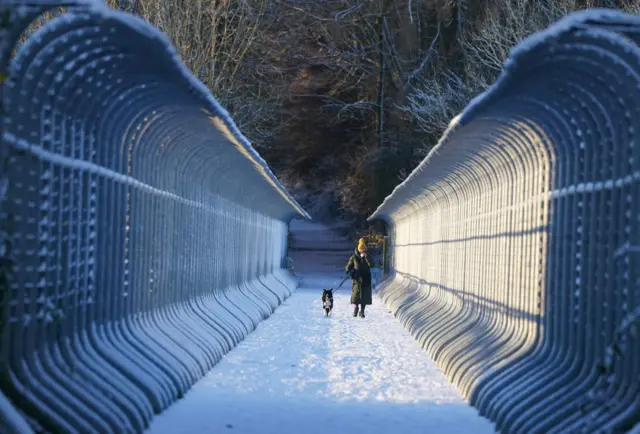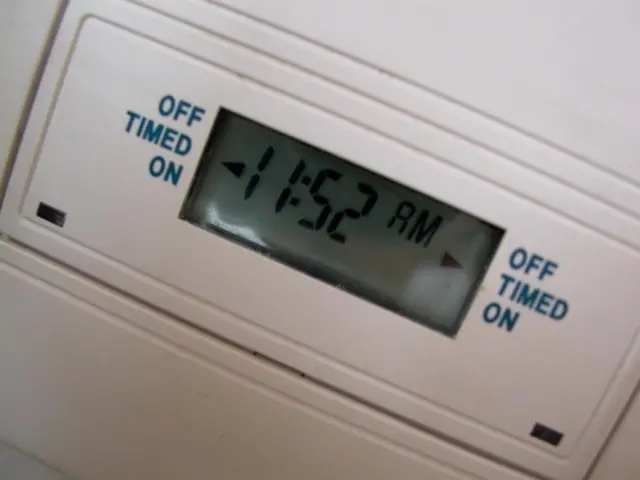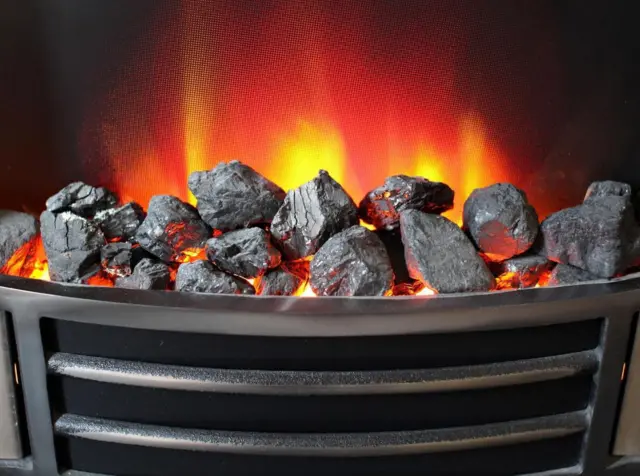Thanks for joining uspublished at 18:00 GMT 9 December 2022
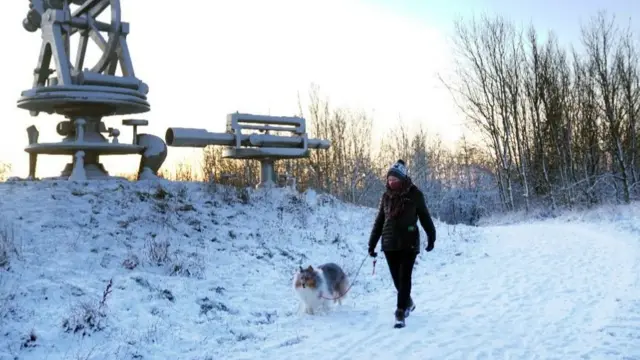 Image source, PA Media
Image source, PA MediaThanks for sending in your questions to our experts, we're ending our live coverage now. We hope you found their help and advice useful to help you keep costs down while coping with the cold snap.
If you're just coming to the page you can scroll down to read answers on questions on topics from how to best heat your house to what effect the cold has on your body and before we go here's a recap of today's main developments:
- The UK will see at least seven days of arctic weather, in which temperatures could drop to as low as -10C (14F) in some areas.
- A yellow warning for snow and ice has been issued by the Met Office for much of Scotland, western England, western Wales, London and south-east England over the weekend
- Forecasters say between two to five centimetres of snow could fall quite widely and up to 10cm in places
- The UK Health Security Agency has issued a level three cold weather alert covering England until Monday - which is triggered when severe cold weather is likely to affect people health significantly
- Millions of people are facing a choice between a cold home and falling into debt due to impossibly high prices, according to fuel poverty charity National Energy Action
- Cold Weather Payments of £25 will be given to eligible people across England, Wales and Northern Ireland to help with their fuel bills if the average temperature in their area is recorded as, or forecast to be, 0C (32F) or below for seven consecutive days
